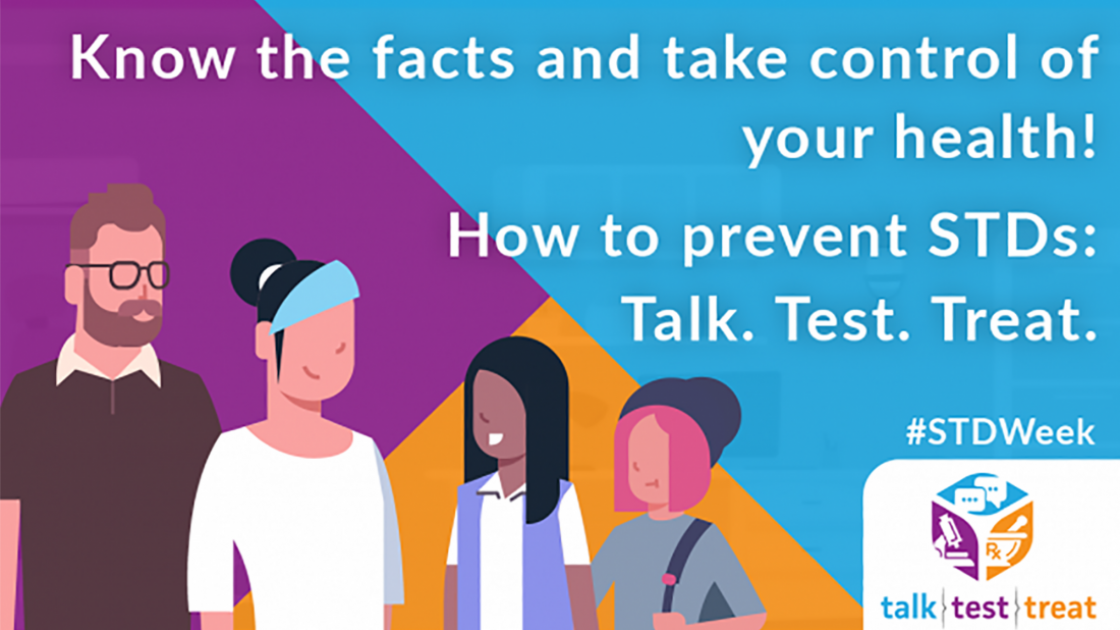
STD Awareness During a Pandemic
Sexually Transmitted Disease (STD) Awareness week is April 12-18 and happens to fall during a pandemic. To educate and assist patients who might be experiencing symptoms during this time, SIU Medicine OB-GYN Nurse Practitioner Kaylie Caswell, answered a few questions.
Note: We're using STD (sexually transmitted disease) and STI (sexually transmitted infection) interchangeably, but there is a difference. Infections are often the first stage of a disease and can occur if bacteria or viruses enter the body and start multiplying. The disruption these bacteria or viruses cause in the body, especially when signs and symptoms appear, is considered disease.
What are the most commonly diagnosed STDs?
Here in the SIU Medicine Department of OB-GYN, the most diagnosed sexually transmitted infections (STIs) are trichomoniasis, Chlamydia and human papillomavirus (HPV).
Similar trends are occurring nationally. In the U.S., between 2014 and 2018, the number of people infected with Chlamydia increased by 15% (Guttmacher). According to the CDC, an estimated 3.7 million people have trichomoniasis in the U.S. Those who have trichomoniasis may not know they have the infection; many patients don’t experience symptoms.
HPV is a virus that can lead to certain types of cancer. According to the American Sexual Health Association, it is estimated nearly 80% of people have HPV at some point in their life. The good news: a vaccine that can prevent nearly 90% of HPV causing cancers is available!
How are we testing and treating STDs in the current pandemic?
We haven't changed who we test or treat. We continue to triage our patients and see our patients who are at risk of a possible STI. We also continue to provide "expedited partner therapy," meaning we'll send treatment to your partner's or partners' pharmacy.
Cervical screening for the HPV virus (Pap Smears) will be performed, if needed, during your next Well Woman visit with us.
There are at home testing kits available. The following companies offer testing for a fee:
The accuracy of tests depends on following instructions carefully. Results are available within 3-7 days. Health insurance companies do not pay for these tests, which run between $80-200.
At what point should a patient schedule a virtual visit to discuss STD symptoms?
During this pandemic, we're trying to limit women's time in the clinic as much as possible, so if you're experiencing symptoms such as painful urination, lower abdominal pain, vaginal discharge, pain during sexual intercourse, bleeding between periods, vaginal odor or sores, we recommend first scheduling a virtual visit to access your symptoms.
Many times, the events leading up to your symptoms can explain what is wrong. For example, a recent sexually active patient came for an office visit because she thought she had a possible vaginal infection. After further discussion, we've discovered her irritation was caused by a change in condom brand. Her STI and vaginitis testing was all negative. This is a great example how a virtual visit can be used to decide if testing is essential.
At what point do symptoms warrant an in-person visit?
If you think you may have been exposed to an STI or if you are experiencing abnormal vaginal discharge and odor, pain in your lower back or pelvis, pain with intercourse, abnormal vaginal bleeding, bleeding after intercourse, and/or fever, you need tested.
Also, if you had a positive home test and finished a treatment but you're still having symptoms, you should make an appointment for an in-person visit.
If you avoid a health care visit for STD symptoms because of COVID-19, what could happen?
First, untreated STI's increase your risk of getting other STI's, especially HIV.
If you are pregnant, it could increase your risk of having your baby too early or cause your baby to be too small at full term.
Finally, if an STI goes untreated there is a risk of Pelvic Inflammatory Disease (PID). PID is an infection of the female reproductive organs. PID can cause long term pelvic pain and it can make it hard to become pregnant.
Schedule a Virtual or In-Clinic Appointment:
To schedule a virtual or in-person visit with SIU Medicine's Obstetrics and Gynecology, please call 217-545-8000 or request an appointment online.
For more resources, visit the CDC, The STI Project or Asha Sexual Health.



